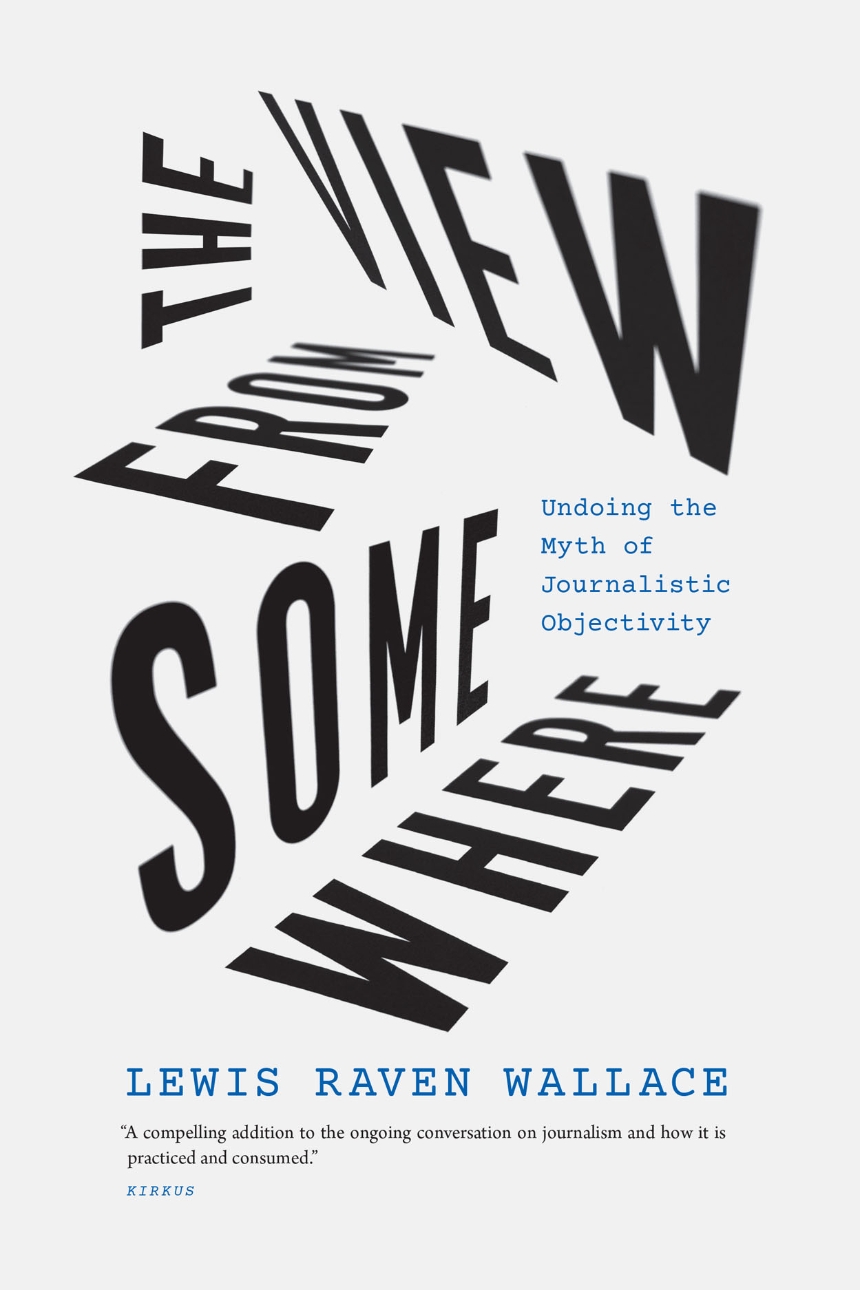The View from Somewhere
Undoing the Myth of Journalistic Objectivity
A look at the history and myth of the objective journalist and how this ideal has been used to silence marginalized voices.
In The View from Somewhere, Lewis Raven Wallace dives deep into the history of “objectivity” in journalism and how its been used to gatekeep and silence marginalized writers as far back as Ida B. Wells. At its core, this is a book about fierce journalists who have pursued truth and transparency and sometimes been punished for it—not just by tyrannical governments but by journalistic institutions themselves. He highlights the stories of journalists who question “objectivity” with sensitivity and passion: Desmond Cole of the Toronto Star; New York Times reporter Linda Greenhouse; Pulitzer Prize-winner Rachel Kaadzi Ghansah; Peabody-winning podcaster John Biewen; Guardian correspondent Gary Younge; former Buzzfeed reporter Meredith Talusan; and many others. Wallace also shares his own experiences as a midwestern transgender journalist and activist who was fired from his job as a national reporter for public radio for speaking out against “objectivity” in coverage of Trump and white supremacy.
With insightful steps through history, Wallace stresses that journalists have never been mere passive observers. Using historical and contemporary examples—from lynching in the nineteenth century to transgender issues in the twenty-first—Wallace offers a definitive critique of “objectivity” as a catchall for accurate journalism. He calls for the dismissal of this damaging mythology in order to confront the realities of institutional power, racism, and other forms of oppression and exploitation in the news industry.
The View from Somewhere is a compelling rallying cry against journalist neutrality and for the validity of news told from distinctly subjective voices.
In The View from Somewhere, Lewis Raven Wallace dives deep into the history of “objectivity” in journalism and how its been used to gatekeep and silence marginalized writers as far back as Ida B. Wells. At its core, this is a book about fierce journalists who have pursued truth and transparency and sometimes been punished for it—not just by tyrannical governments but by journalistic institutions themselves. He highlights the stories of journalists who question “objectivity” with sensitivity and passion: Desmond Cole of the Toronto Star; New York Times reporter Linda Greenhouse; Pulitzer Prize-winner Rachel Kaadzi Ghansah; Peabody-winning podcaster John Biewen; Guardian correspondent Gary Younge; former Buzzfeed reporter Meredith Talusan; and many others. Wallace also shares his own experiences as a midwestern transgender journalist and activist who was fired from his job as a national reporter for public radio for speaking out against “objectivity” in coverage of Trump and white supremacy.
With insightful steps through history, Wallace stresses that journalists have never been mere passive observers. Using historical and contemporary examples—from lynching in the nineteenth century to transgender issues in the twenty-first—Wallace offers a definitive critique of “objectivity” as a catchall for accurate journalism. He calls for the dismissal of this damaging mythology in order to confront the realities of institutional power, racism, and other forms of oppression and exploitation in the news industry.
The View from Somewhere is a compelling rallying cry against journalist neutrality and for the validity of news told from distinctly subjective voices.
Reviews
Table of Contents
Introduction
1. How Black Lives Matter Made the News
2. The Deviants: Race, Lynching, and the Origins of “Objectivity”
3. The Agitators: Journalists as Labor Leaders
4. Drowning in Facts: “Objectivity,” Ambiguity, and Vietnam
5. “Public Radio Voice”
6. Straight News, Gay Media, and the AIDS Crisis
7. Journalism’s Purity Ritual
8. “Can’t You Find Any More Women to Attack?”: What Happens When Facts Don’t Matter
9. Truth and the Lost Cause
10. The “Assault on Reality”: Trans People and Subjectivity
11. The View from Somewhere
Conclusion: The End of Journalism
1. How Black Lives Matter Made the News
2. The Deviants: Race, Lynching, and the Origins of “Objectivity”
3. The Agitators: Journalists as Labor Leaders
4. Drowning in Facts: “Objectivity,” Ambiguity, and Vietnam
5. “Public Radio Voice”
6. Straight News, Gay Media, and the AIDS Crisis
7. Journalism’s Purity Ritual
8. “Can’t You Find Any More Women to Attack?”: What Happens When Facts Don’t Matter
9. Truth and the Lost Cause
10. The “Assault on Reality”: Trans People and Subjectivity
11. The View from Somewhere
Conclusion: The End of Journalism
Acknowledgments
Further Reading
Index
Further Reading
Index
